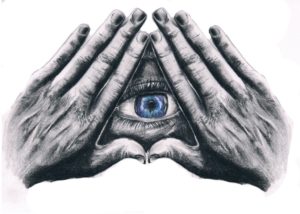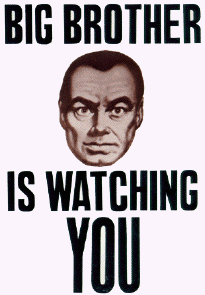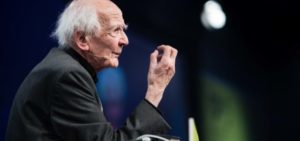On January ninth, influential sociologist-philosopher Zygmunt Bauman passed away at the age of ninety-one. A central theme Bauman taught over the decades is that we should work hard to resist the tenets and dogmas of seclusion, loneliness, or independence of modern selves. Our Individual personal worth is, Bauman contended, so much more complex, interdependent, and unique compared with enlightened, universal, Cartesian selfhood constituted by the tradition of modern subjectivity running from Rene Descartes to Edmund Husserl. Universality is to be respected only as it relates with the ends of promoting a cooperative plurality and variety. The diversity of the universe is a virtue that must be cherished in a world that treats global relations increasingly as the norm. Contemporary discourse on independence has become uncritical—dare I say ideological? —and all too easily devolves into attempts to justify self-serving purposes. Indeed, a history of the human species may be written that describes a series of scrums resembling more of a tribalism than globalism. Not to mention that obsessions with independence renders us bankrupt without any means for self-improvement or self-overcoming—privileged observers seek to cultivate and improve the tools to navigate the world as if they were above or independent of it.
Since Noah’s Ark, human races have worked to secure that “controlled environment” that is the fantasy of the detached or privileged observers. There is no “outside” for the one who is able to bring the entire world, albeit virtualized, inside or at one’s fingertips and this is to reside at the twenty-first century summit. We continually aim to outrun from tragedy and falling victim to downfalls. It is more than coincidental that we are the age of insurance and attempt to be way out ahead of our potential accidents and errors. We live in the epoch of risk-management, which is a more updated and sophisticated version of the operation began long ago with Noah’s Ark. In a certain sense, Noah was the first privileged observer and the Ark serves as the first scientific observatory or laboratory. It is the initial project that leads to the climatological politics of our epoch and the desire to find ways to channel our way through the entire world, while constructing secure mediums to immunize ourselves at the same time. The fantasy of independence must perpetually negotiate with the reality of interdependence!
The mission of culture has been to bring the outside on the inside under the protections and controls of immunity that results in cramped or limp openness. We have been in a constant rat-race of finding ways to disseminate and broadcast with access to the outside or “world” that can be replicated or reproduced, all while being protected from its torments within the comfy confines of our homes. As American philosopher William H. Ferris writes in The African Abroad, “[W]e might go further and show that all of the great movements of men which have changed the course of human history, Christianity, Mohammedanism, Buddhism, Confucianism, the Crusades, the Protestant Reformation, the American Revolution, the French Revolution and the anti-slavery movement, were caused by a few thinkers propagating, disseminating and scattering broadcast a few germ ideas” (2016, 111).
With social media emerges the democratization of broadcasting and communicative powers at the cultural level, already prevalent in the depths of nature. With the formation of communities filled with quasi-broadcasters who use and spread knowledge and information contagiously to such an extent that the universities and libraries of yesterday are becoming the theaters of today. Our epoch could be characterized as one giant wasteland of privileged observers, who rely upon the network-portals of cyber architectural designers. America and Europe are the headquarters for this apparatus, but they need not be. Distance, place, and territory have taken on radically new meanings in our times through the advancement of ego-technic media. Access to this capacity for anyone to act in the fashion of a quasi-broadcaster is the new globalism under which we live.
A world of networking is vastly different from one dominated by the nearness and intimacy of communities that emphasize a kind of self-sacrifice for the sake of the greater whole. Networks are oriented toward self-serving structures of action that no longer rely upon any lasting or rooted ties. In our age of betrayal and disloyalty as technical non-dwellers, we embody a people that puts a high premium on no attachments to anything remotely permanent—you or I can unplug or hit the button at whim! We are ready to cheat on our homes and head for the weekend or beach house, or take a spin with our “special” car that hides away waiting on us in the garage! Cherished cultural artifacts must undergo updates, renovations, and recycling. Privileged observers must have the newest, latest whatever or, at least, what they consider the “best” while going around attempting to convince all about how they should adopt their superior preference. If they are loyal at all, it is to what is taken to be the “best”, or whatever latest whim or superficial thrill grabs one’s interest, for the moment, and levitates him or her into the class of privileged observers.
As Whitehead writes in his essay “Immortality” “[It is a] fundamental metaphysical truth that every entity involves an indefinite array of perspectives, each perspective expressing a finite characteristic of that entity. But any one finite perspective does not enable an entity to shake off its essential connection with totality. The infinite background always remains[…]” In other words, wholes and parts share a mutual relatedness of respect and reciprocal equality. What is so destructive in the ego-centered, controlled environment metaphysics of privileged observers lies the overstatement that one’s “unique perspective” can stand in an “see” the unity of the whole, or solidarity of the universe; what Whitehead calls the “unique background.” Given that no part is the whole itself, however interrelated they may emerge to be, nothing other in the universe(s) can produce a true or authentic originality or creativity. Whatever occurred at the beginning was the original and everything following from that involved the accretion of repetition, temporality and value. At best, humans can only get at the quasi- or almost new. Exclusive possession and ownership are no longer valued and protected as they once were, and we prefer to assume or treat others as if they will be takers and givers, or sharers and users—game-players and hustlers. Nations, churches, artists, scientists, historians, and all other monopolists will have very little authority over access to knowledge and information other than through claims to quasi-entitlements and arrangements that can only be renegotiated. It is no stretch to claim that the rise and fall of nations is a great board-like game play of sharing and using cultural rituals and practices, all given fruition within the unique circumstances of its time and place. Cultural objects and artifacts no longer require a material carrier, since they can be alchemized into bits of data. Anything that does not transmute into the techno-informational-processes of kinetic communication, will feel exhausted and eventually fall victim under the fatigues of modern intelligences. It will be another Western civilizational hemorrhage or crisis of the individuals similar to the French and American Revolutions that were pragmatic and political. Peter Sloterdijk gives wise advice to conclude a recent editorial, “No Such Thing as the Global Village,” that theorists and humorists need each other. He does not mean this in a comic or demeaning way, as to embrace the non-serious and cynically turn our prospects for the world into spectacle, but the connection is ironic. He writes, “Irony provides an effective antidote to a feeling of powerlessness. The most appropriate attitude of the theorist, however should be that of a humorist. According to philosophical aesthetics, humor is an ability to see the lowest things from a higher position and the highest heights from the lowest point.” Privileged observers have no problem with the latter, but cannot grasp the former.
Privileged observers never see themselves sitting among the crowd in the cheap seats. If they are not sitting courtside or behind home plate, at the fifty-yard line, they are in their booths or skyboxes looking over things. Technology and surveillance go together like hand in glove, and privileged observers bring together both in techno-gnostic ways. Like mall shoppers, all quasi-broadcasters are at the mercy of those power elites who patent and invest in the production of these techno-gnostic strategies and super computer algorithms. The animal paw became the human palm, which acts as a kind of quasi-universal hand today!
George Orwell was on to something about the notion of Big Brother in Ninety-Eighty-Four, but merely conceived of it in twentieth century terms. Today, we recognize how easily anyone can get access to these tools and play the role of Big Brother. The temptations of playing Big Brother have been so widely distributed, in fact, we must now ask ourselves who can resist the seductive allure that such power offers? Who will not become a Google stalker or manipulate the broadcast to one’s own (non-)devious interests? Who has not been given the technological capacity to be Kelly Conway’s peeping microwave without alarming one about being under the gaze of such a privileged observer? In our age, knowledge is equivalent with accessibility to information and consultations (especially through videography) who have extensive experience in such areas of learning. So-called experts can get you to the sources, teachers of today are more like guides in Aristotle’s form of Peripatetics. Under these circumstances, we can either work to spread and circulate the flow of knowledge or access—by this I mean to embrace the means of co-existence—or promote the art of hording and ungenerous accumulation that does more to clogging than building, which can lead to the dark obsession to police how knowledge is used and shared. Self-righteous observers claim a kind of superior or privileged access to information or resources, that grants them a special entitlement to regulate their production, use, and so on. They act not like “Shepherds of Being” in Heidegger’s fundamental ontology, but as the overseers of controlled environments. Such control is dangerous and illusory because the flock will run astray and there are no clear boundaries anymore that allow us to conceive of a “commons” in any old-fashioned sense.
We must be willing to look over our shoulder and not fall for those virtual illusions that domesticate us with the erotic fetishes of individual independence. No sense of purity or privileged vantage point can be taken seriously unless one drinks the elixir of the closed, impermeable self that exaggerates its own worth in self-seriousness. Instead of listening to others without knowing in advance as if on a trip, we have to guard against becoming more comfortable insulated in our own echo chambers of self-praise and pity. There is a sense in which the isolation and loneliness will catch up with us, once we get past the vast array of techniques designed to distract and numb us from it through “addiction by design.” In our increasing interaction and dependency on technology there are things we can learn from our adopted lives together. But neither the humanistic book-dying culture nor the data-hoarding cloud people will have privileged access! We know now more than ever that human cultural identities and rituals are more like floating islands than stable territories! As Bauman argued in many of his works, we have to disillusion ourselves from the fantasies of Archimedean points and thinly-veiled Rawlsian original positions of pretentious “ignorance.”






